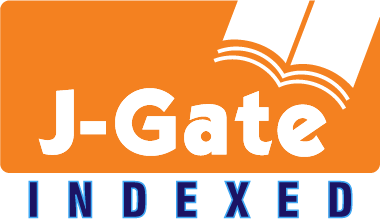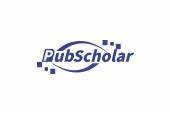-
Peer review policy
Invitation to review
All submitted manuscript are reviewed by at least two experts in the field who are invited to evaluate the quality of the manuscript and provide recommendation to the editor on whether a manuscript can be accepted, requires revisions or should be rejected.
At our journals time is highly valued so, in order to be effective, an initial verification of the manuscript will be performed by the Managing Editor of the journal, on the suitability to the aims and scopes of our publication. The peer- reviewing process will be then organized by the Editorial Office and at least two independent experts will each provide a review report.
Invited reviewers are kindly asked to respond to the reviewing invitation as soon as possible, based on the manuscript title and abstract. In case of a declined invitation, a suggestion on alternative reviewers is welcome. In order to ensure efficient and high quality publishing services, reviewers may ask for an extension in case more time is needed to compose the report.
What to provide as a reviewer
Invited reviewers are kindly asked to provide a detailed, constructive review report containing an overall recommendation for the publication of the manuscript, by taking into consideration the following aspects:
1. Originality. 2. Significance. 3. Quality of presentation. 4. Scientific soundness. 5. Potential interest to readers. 6. Overall merit. 7. English level.
Potential Conflict of Interests
Reviewers are kindly asked to inform the journal editor in case of a conflict of interests that may impair the review report, in either positive or negative ways. The editorial office will check as far as possible before invitation. However, the cooperation of reviewers is highly appreciated in this regards. In case of previous assessment of the manuscript for a different journal, this should not be considered as conflict of interest in itself. Under these circumstances, reviewers could feel free to inform the editor whether any improvements have been made to the previous version.
Confidential and anonymous reviewing process
Confidentiality on the abstract and content of the manuscript is requested from reviewers. The editorial office must be informed in case the reviewer would like a student or colleague to complete the review on their behalf.
Our journals operate single or double blind peer-review and reviewers should be careful not to reveal their identity to the authors, through their comments or metadata for reports submitted in Microsoft Word or PDF format.
In case authors wish to publish the review reports with their papers, reviewers will be noted in the invitation message, in this case, the open review reports must be signed by reviewers at publication. Anyhow, this will only be done with the reviewer’s express permission. In all other cases, review reports are considered confidential and will only be disclosed with the explicit permission of the reviewer.
Always on time
Our journals aims to provide efficient and high quality publishing services. Therein, reviewers are kindly asked to support this cause by providing review reports in a timely manner. Please, contact the editorial office if you require an extension for the review deadline.
How to perform the reviewing process
Reviewers that are invited to evaluate a submission to our journals are kindly asked to prepare a report containing (·) a short introduction to define the objectives of the manuscript and its main contributions; (·) extensive comments on both strong and weak points of the paper; (·) specific comments on phrases (line numbers), tables, figures. Formatting issues will be addressed by the editors.
Guideline questions for the reviewing process are given below:
1. Originality and novelty
Is the objective original and well defined?
Do the results provide and advance in current knowledge?
2. Significance
Are the results interpreted appropriately? Are they significant?
Are all conclusions justified and supported by the results?
Are hypotheses and speculations carefully identified as such?
3. Quality of presentation
Is the article written in an appropriate way?
Are the data and analyses presented appropriately?
Are the highest standards for presentation of the results used?
4. Scientific soundness
Is the study correctly designed and technically, correct?
Are the analyses performed with the highest technical standard?
Are the data robust enough to draw the conclusions?
Are the methods, tools, software, and reagents described with sufficient details to allow another researcher to reproduce the results?
5. Potential interest to readers
Are the conclusions interesting for the readership of the journal?
Will the paper attract a wide readership, or be of interest only to a limited number of people? (please see the Aim and Scope of the journal)
6. Overall merit
Is there an overall benefit to publishing this work?
Does the work provide an advance towards the current knowledge?
Do the authors have addressed an important long-stranding question with smart experiments?
7. English level
Is the English language appropriate and understandable?
Meeting the ethics
Material International aims for an ethical publication process. The reported results should only be submitted for publication here and should not have been published before, even partially. Also, reusing text from another sources should be appropriately cited.
The biological studies included in the submitted manuscript must have been approved by an Institutional Ethical Committee and done accordingly to generally accepted ethical research standards.
In case of scientific misconduct, fraud, plagiarism or other unethical behavior, reviewers are kindly asked to immediately notify the in- house editor.
The Overall Recommendation
Finally, reviewers are kindly asked to provide an overall recommendation for the submitted manuscript, as following:
Accept in present form, when the paper needs no further changes.
Accept after minor revision, when the paper is mainly accepted, but authors must respond to small reviewer’s comments and questions. A five- days time allowance is given for authors to provide a response.
Reconsider after major revision, when the acceptance of the manuscript is conditioned by the ability of authors to respond and comply to reviewer’s comments. A ten- days time allowance is given for authors to provide a response.
Reject, when the article is not accepted for publication due to either major flaws or lack of originality. No offer of resubmission to the journal will be made.
Referee Recruitment
The peer reviewers will be chosen according to their subject and major concentration.
Qualification of Reviewer
Reviewers must have at least 5 researches for the last consecutive 5 years published in refereed journals. Each of them will be invited according to their subject and major concentration. All reviewers are external. Selection of reviewers is the responsibility of the editorial board. UVJOR have a pool of invited reviewers. If there are no identified/qualified experts from the pool to review the submitted paper, the editorial board, with the assistance of the publication officer, will facilitate identification and invitation. If the board cannot identify one, especially when academic topics are highly-specialized, author’s inputs may be solicited in enumerating a list of experts in the specific specialized field.
Plagiarism check
Our journals utilize a dedicate software for originality check to determine the Similarity Index. It generates originality report by providing a summary of similar text form its data base. Direct Quotation and Reference Lists are excluded in the report. Only the content of the manuscript are considered for text matching.
Similarity Check
Our software recommends that the final arbiter in excluding materials should be based from human judgment. The editor-in-chief determines which materials are not contextually related to the submitted manuscript and manually excludes them in the report. Matches less than 6 words are also excluded.
Originality Scoring
Manuscript with an originality rating of 90% and above will be published without revision. A rating of 51% to 89% will be returned to the authors for revision. Ratings below 51 will be rejected for publication. Transmittal of Similarity Index Result. The report will be printed and transmitted to the author/s for manuscript revision.














